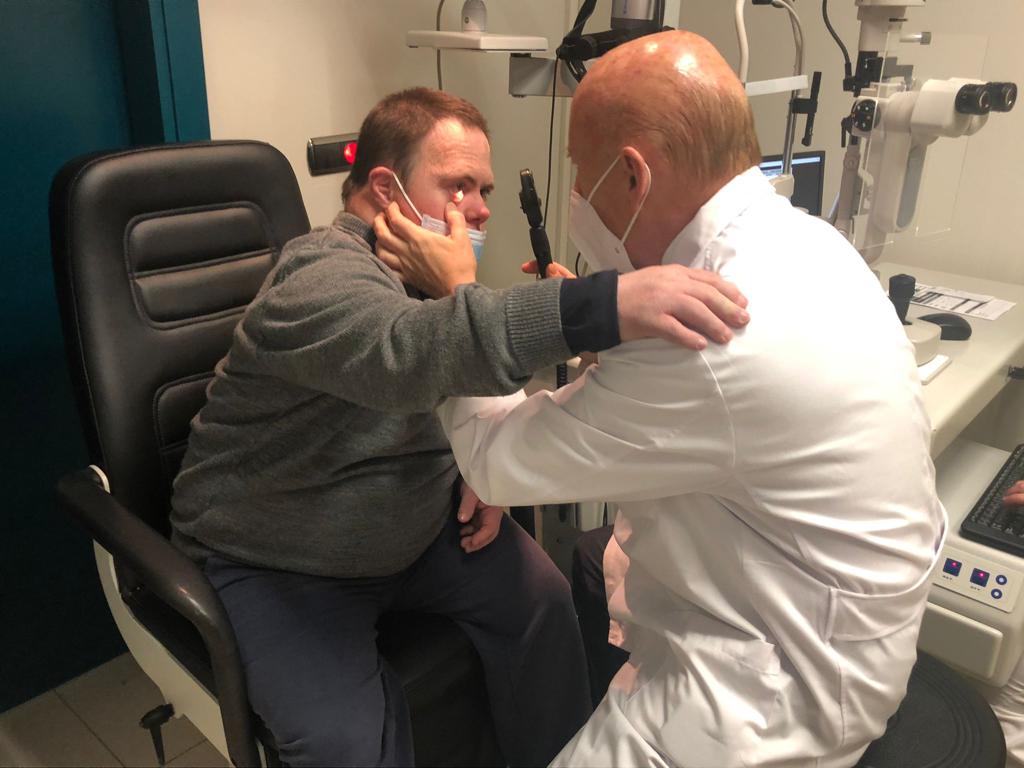
Down syndrome and ophthalmology: Vissum Grupo Miranza promotes early diagnosis of eye problems in these patients
Twenty ophthalmic patients who suffer Down syndrome and are members of AIDEMAR, a local association of disabled persons, recently visited our centre in Alicante Vissum Grupo Miranza for free eye examinations. The goal is to examine 60 patients of the association in three campaigns that are part of a programme for the early detection of eye disorders among those affected by Down syndrome, as they are at greater risk of visual loss, chiefly due to corneal problems.
Corneal problems: the most common ophthalmic impairment of Down syndrome
For over 10 years, Vissum Grupo Miranza has studied the link between Down syndrome and ophthalmology in a project led by professor Jorge L. Alió in which Miguel Hernández University and the Polytechnic University of Cartagena have also participated. “We have been studying the state and the evolution of the corneas of patients suffering this disorder by using mathematical analysis methods to develop new diagnostic tools for corneal disease”, the specialist explains.
The team’s work in this field—published in journals such as JAMA Ophthalmology, British Journal of Ophthalmology and Cornea—has established that all patients with Down syndrome have some degree of corneal alteration (Down syndrome keratopathy) that may present mildly or progressively. Preventive treatment is available for cases of progressive presentation. “Their corneas are thinner and irregular and, as scientific evidence shows, in over 70% of cases, they display characteristics that are compatible with those of keratoconus, which is a disorder in which the outer layer of the eye becomes conical instead of round and diminishes vision”.
According to professor Jorge L. Alió, “It is of paramount importance to detect these cases as soon as possible and to determine which of them progress and require treatment to avoid development to severe stages that require corneal transplants.” The founder of Vissum Grupo Miranza goes on to say, “It must be considered that corneal transplants are particularly complex in patients with Down syndrome. Not only are there greater challenges insofar as control and monitoring but also higher risk of severe inflammatory reactions that may compromise the effectiveness of the transplant.”
Access of patients with Down syndrome to more specialised ophthalmology
Due to this high incidence of corneal disease, the examinations performed at Vissum Grupo Miranza in Alicante—carried out by the doctors Jorge Alió Sanz, Jorge Alió del Barrio and Alejandra Amesty—included tests using the latest technology to measure corneal thickness, curvature, regularity, elasticity, etc. Additionally, refraction tests and thorough eye examinations were performed, because ophthalmic patients with Down syndrome are also more likely to develop cataracts at early ages and to suffer high myopia (greater than six to eight dioptres, with frequently associated ocular complications), among other disorders.
In addition to their eyes being more vulnerable, diagnoses are often delayed because patients with Down syndrome are unable to access specialised ophthalmology. These kinds of initiatives aim to remedy the situation, as “guaranteeing good vision is an important part of the personal autonomy and societal integration of these groups of people”, concludes professor Alió.